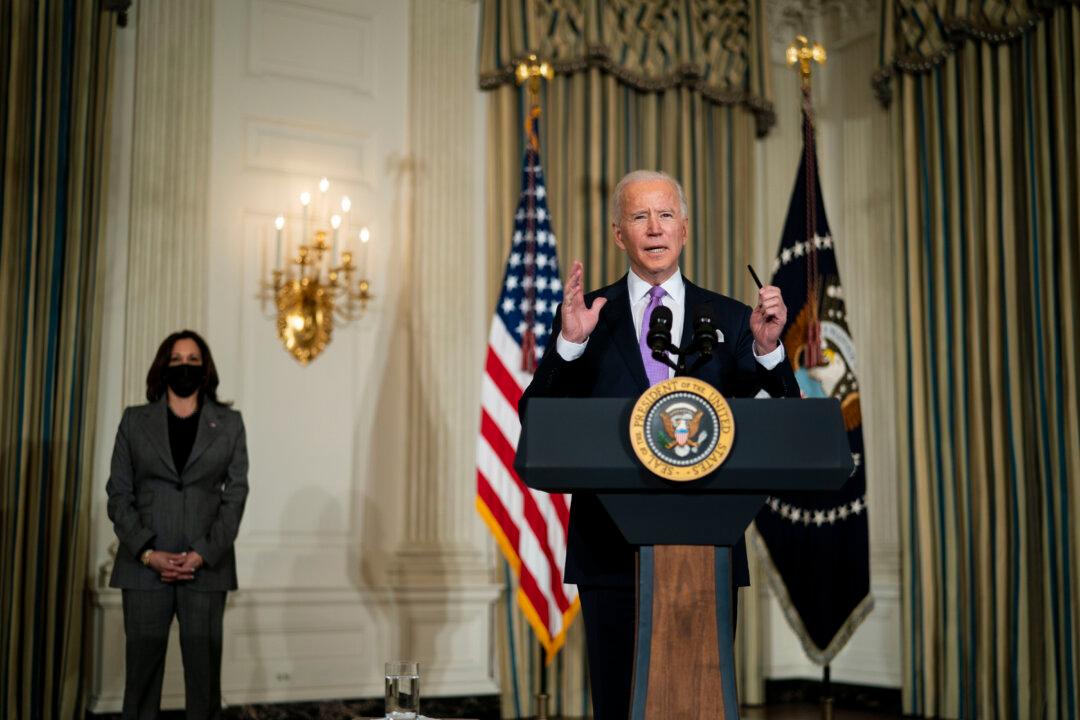President Joe Biden has proclaimed a commitment to embed the quasi-Marxist “equity” ideology throughout the government.
“We need to make the issue of racial equity not just an issue for any one department of government; it has to be the business of the whole of government,” Biden said in remarks on Jan. 26 before signing an executive order and three memoranda.





